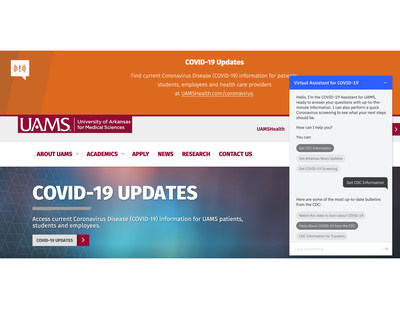The coronavirus has been a far deadlier threat in New Orleans than
the rest of the United States, with a per-capita death rate much higher
than in New York City. Doctors, public health officials and available
data say the Big Easy’s high levels of obesity and related ailments may
be part of the problem.
“We’re just sicker,” said Rebekah Gee, who until January was the
Health Secretary for Louisiana and now heads up Louisiana State
University’s healthcare services division. “We already had tremendous
healthcare disparities before this pandemic – one can only imagine they
are being amplified now.”
Along with New York and Seattle, New Orleans has emerged as one of
the early U.S. hotspots for the coronavirus, making it a national test
case for how to control and treat the disease. Chief among the concerns
raised by doctors working in the Louisiana city is the death rate, which
is seven times that of New York and ten times that of Seattle, based on
publicly reported data.
New Orleans residents suffer from obesity, diabetes and hypertension
at rates higher than the national average, conditions that doctors and
public health officials say can make patients more vulnerable to
COVID-19, the highly contagious respiratory disease caused by the
coronavirus.
Some 97% of those killed by COVID-19 in Louisiana had a preexisting
condition, according to the state health department. Diabetes was seen
in 40% of the deaths, obesity in 25%, chronic kidney disease in 23% and
cardiac problems in 21%.
New Orleans, which so far has reported more than 270 coronavirus
deaths, could be a harbinger for the potential toll the pandemic could
take in other parts of the South and Midwest that also have high rates
of obesity, diabetes, and hypertension.
A host of other factors could contribute to New Orleans’ high death
rate for coronavirus, ranging from access to healthcare and hospital
quality, to the prevalence of other conditions including lung disease,
health officials say.
But they also add that it is clear that obesity-related conditions
are playing a role in the deaths. That could be a warning sign for the
United States at large, where chronic obesity is more common than in
other developed countries, they said.
Hospitals are reporting cases across the generations -mothers and
daughters, fathers and sons – being intubated and cared for in the same
intensive care units (ICUs), said Tracey Moffatt, the chief nursing
officer at Ochsner Health, the largest healthcare provider in Louisiana.
The prevalence of obesity, diabetes, hypertension and heart disease in
New Orleans and Louisiana plays into that, she said.
Those family members often suffered from the same medical conditions
before becoming sick, leaving them similarly vulnerable to the
coronavirus despite their age gaps.
“We had a case where a mom was already in the ICU and the daughter,
who was obese, came in,” she said. “The daughter asked staff to wheel
her by her mom’s room so she could say goodbye before she herself was
intubated. We knew the mother was going to pass away.”
Both patients suffered from obesity.
‘MORE VULNERABLE’
The Centers for Disease Control and Prevention released for the first
time this week a report showing that 78% of COVID-19 patients in ICUs
in the United States had an underlying health condition, including
diabetes, cardiovascular disease, and chronic lung disease.
The CDC report was based on a sample of under 6% of reported
coronavirus infections, but doctors in Louisiana said it was consistent
with what they are seeing, and it is in line with what other countries
like Italy and China have faced.
Those percentages, said Dr. Joseph Kanter, an emergency department
doctor and the top public health official in New Orleans, are likely
similar in cities across the United States.
“What we worry about here is that we have more people in our
communities with those conditions,” he said. “We’re more vulnerable than
other communities, and the number of deaths we’ve seen illustrates
that.”
The New Orleans metropolitan statistical area ranks among the worst
in the United States for the percentage of residents with diabetes, high
blood pressure, and obesity, a Reuters analysis of CDC data shows. An
estimated 39% have high blood pressure, 36% are obese and about 15% have
diabetes.
Nationally, the median is 32% with high blood pressure, 31% obese and 11% with diabetes.
“The burden of disease in Louisiana and the Deep South is higher than
in rest of the country,” said Gee. “Invariably that means that the
South is going to be hard hit by this.”
https://www.reuters.com/article/us-health-coronavirus-new-orleans/why-is-new-orleans-coronavirus-death-rate-seven-times-new-yorks-obesity-is-a-factor-idUSKBN21K1B0
